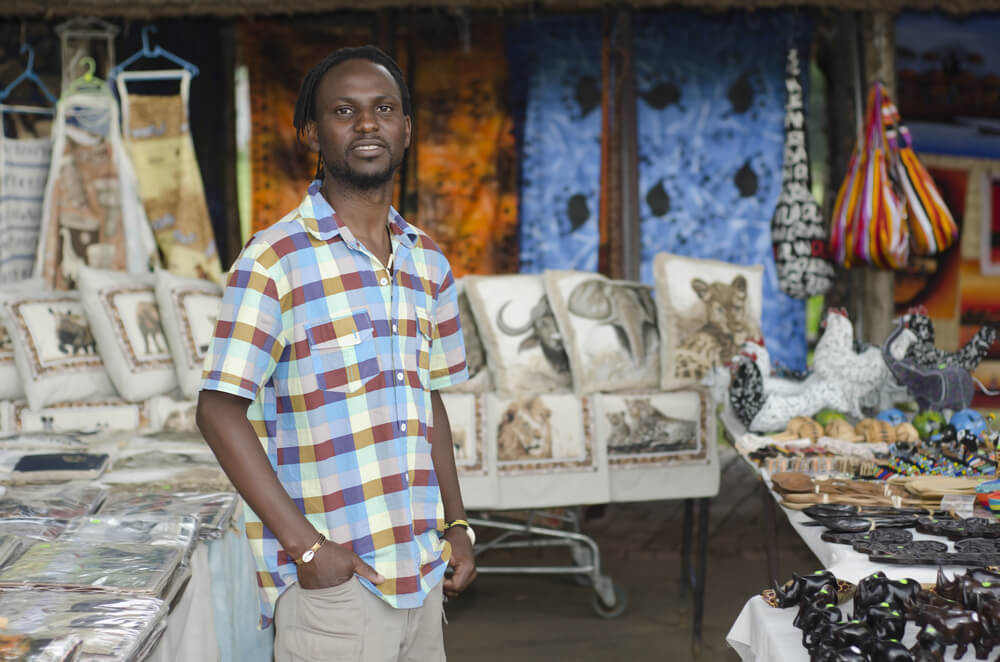Quick, close your eyes and think of Africa. What’s the first image that pops into your head?
Animals grazing on the veld? A hungry child? A child soldier? Mutual of Omaha’s Wild Kingdom?
Few of us see Africa as it really is … because it rarely gets to tell its own story.
In my case, I see Table Mountain. That’s because my other home is in Cape Town, South Africa.
But if I really wanted to express the essence of Africa, I’d show you an image of a street market.
Apart from South Africa, 90% of consumer spending in sub-Saharan Africa occurs in informal markets, even in countries with well-developed retail and distribution systems.
In Cape Town, one of the most advanced cities on the continent, most retail shopping takes place in small shops and marketplaces in the massive, informal settlements on the city’s outskirts.
The difficulty and cost of transportation to traditional shopping centers and supermarkets means it’s cheaper and easier to buy from small vendors who set up shop where people live.
But that’s changing … fast.
Africa: Growth, Guaranteed
Where does economic growth come from?
The answer explains why Africa is guaranteed to be the fastest-growing part of the world in the next 50 years.
When I studied economic history in college, I was exposed to all kinds of sophisticated debates about this question. Technology? Good government? Free markets?
But plowing through all those complicated theories, I learned that the sources of economic growth are incredibly simple.
Over time, one-third of a country’s increase in gross domestic product (GDP) comes from productivity increases. That’s the result of capital investment and improved technology.
The other two-thirds of GDP increase come from population growth.
That implies something so simple that I’m shocked more people haven’t mentioned it. The easiest way to see it is in a chart:
The message: Africa’s population growth will outstrip every other region of the world for the rest of the century. Ergo, it will have the highest rate of economic growth.
Africa’s population is projected to grow by 500 million by 2030, and to double by 2050. That tells me two things.
First, since population increase is the main driver of GDP growth, Africa’s GDP will grow faster than everyone else’s even if productivity doesn’t rise, which is unlikely.
Second, for the next 30 to 40 years, Africa will have a higher proportion of working-age people than the rest of the world.
That means there will be more resources available for investment in economic development and personal consumption.
That means faster economic growth. And faster economic growth means rising incomes, generating business opportunities.
Experts expect annual spending by African consumers and businesses to reach $6.66 trillion by 2030, up from $4 trillion in 2015.
This isn’t just theory. Six of the 10 fastest-growing economies in the world last year were in Africa:
Let’s Play Leapfrog!
Foreign tourists are often startled by the ubiquity of mobile phones in Africa. Everybody seems to have one.
Sub-Saharan Africa saw the world’s fastest rate of new broadband connections between 2008 and 2015 — an average of 34% every year. Mobile data traffic is expected to increase sevenfold by 2022.
Africa is the world’s second-largest mobile market behind Asia:
This remarkable take-up of a new technology in one of the world’s poorest regions reflects a common theme in economic history. It’s called technological leapfrogging.
When the mobile revolution emerged in the late 1990s, landline phones in Africa were limited to major cities. So as incomes increased, Africans ignored the old technology and bought cell phones instead.
The huge African market for basic phones meant mobile providers could sell them cheaply.
But that’s not the only game of leapfrog that’s happened in Africa.
When I first arrived in Africa in the 1980s, very few people had their own bank accounts. A combination of cash poverty and expensive retail banking systems made it unaffordable.
The mobile phone revolution allowed Africa to skip formal banking altogether.
Africa has more than 120 million active mobile money accounts, over 50% of the global total. Of the 300 mobile banking products launched in the last five years, more than half have been in Africa.
Get Ready for a Profitable Revolution!
Today, most consumer spending on the continent takes place in informal, roadside markets and home-based shops.
Even in my adopted hometown of Cape Town, most people buy their daily necessities from informal neighborhood stores called spazas. They sell everything from matches to mobile airtime.
That means there is enormous potential for growth in the retail sector as African consumers shift from the informal toward more formal forms of consumption — shopping malls, supermarkets and eventually even e-commerce.
That process is already underway in all but the most fragile and underdeveloped countries.
What if you could invest in companies targeting the retail sector in the fastest-growing consumer market in the world? Compared to the long-term limits on growth in the rest of the world, wouldn’t you want to?
Well, you can … and in the next issue of my Bauman Letter, I’m going to tell my readers exactly how to do it, with the potential to earn profits of nearly 4,000%!
Kind regards,
Ted Bauman
Editor, The Bauman Letter
